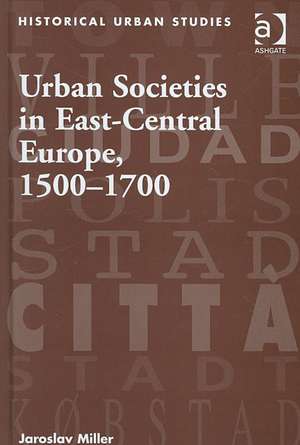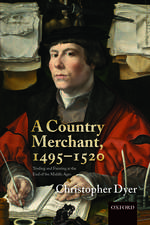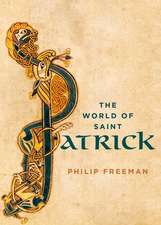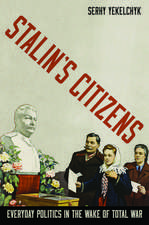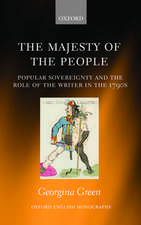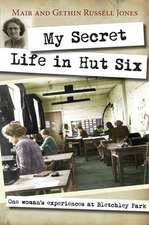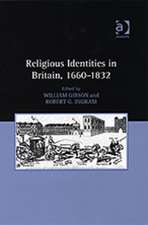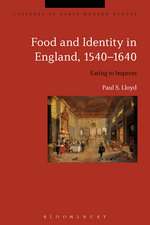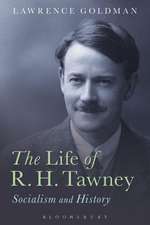Urban Societies in East-Central Europe, 1500–1700
Autor Jaroslav Milleren Limba Engleză Hardback – 8 iul 2008
| Toate formatele și edițiile | Preț | Express |
|---|---|---|
| Paperback (1) | 469.34 lei 6-8 săpt. | |
| Taylor & Francis – 25 noi 2016 | 469.34 lei 6-8 săpt. | |
| Hardback (1) | 1060.56 lei 6-8 săpt. | |
| Taylor & Francis – 8 iul 2008 | 1060.56 lei 6-8 săpt. |
Preț: 1060.56 lei
Preț vechi: 1293.37 lei
-18% Nou
Puncte Express: 1591
Preț estimativ în valută:
203.00€ • 220.58$ • 170.63£
203.00€ • 220.58$ • 170.63£
Carte tipărită la comandă
Livrare economică 21 aprilie-05 mai
Preluare comenzi: 021 569.72.76
Specificații
ISBN-13: 9780754657392
ISBN-10: 0754657396
Pagini: 316
Dimensiuni: 156 x 234 x 19 mm
Greutate: 0.62 kg
Ediția:1
Editura: Taylor & Francis
Colecția Routledge
Locul publicării:Oxford, United Kingdom
ISBN-10: 0754657396
Pagini: 316
Dimensiuni: 156 x 234 x 19 mm
Greutate: 0.62 kg
Ediția:1
Editura: Taylor & Francis
Colecția Routledge
Locul publicării:Oxford, United Kingdom
Cuprins
Contents: Introduction: the closed society and its enemies; Urbanization trends and urban landscape; Urban immigration; Integrity of urban society challenged I: unassimilated groups in cities; Integrity of urban society challenged II: urban conflicts and city autonomy in the context of reformation; Building a Leviathan: the early modern city and early modern state; Urban economy: its basic parameters; Conclusion; Bibliography; Appendices; Index.
Notă biografică
Dr Jaroslav Miller is the Associate Professor of History at Palacký University Olomouc, Czech Republic.
Recenzii
’Jaroslav Miller’s book, Urban Societies in East Central Europe, 1500-1700, is an ambitious work that compares early modern urban development in Poland, Bohemia, Moravia, Silesia, and Hungary. Empirically rich and filled with countless case studies based on a wealth of archival research and excellent mastery of secondary sources, the work should become an instant classic in the field of early modern East Central European urban history. ... Miller has written the most important work on early modern East Central European urban development in English. His work should become standard reading in any Eastern European PhD program. It is exemplary in its use of archival evidence, supported by secondary sources. I strongly recommend it.’ H-Urban '... the book offers the best available introduction in English to East European towns during the sixteenth and seventeenth centuries and is surely welcome.' English Historical Review '... we should all welcome the appearance of Jaroslav Miller’s ground-breaking book, which is the first, pioneering work in English to review the present state of our knowledge of the cities of East-Central Europe. As such, it will serve as an excellent introduction to the subject for both students and teachers at Western Universities.' Harvard Ukrainian Studies
Descriere
This book looks at urban development in East-Central Europe from the middle ages to the early modern period. Dealing primarily with Bohemia, Hungary and the Polish-Lithuanian Commonwealth, and to a lesser degree with parts of Austria and Germany, this book provides an insight into a number of key issues concerning the economic, social and demographic trends in early modern East-Central European urban history. Drawing on a wealth of primary sources, it examines the effects of migration, Reformation, state building and economic change on the transformation of medieval urban communities into early modern societies.
